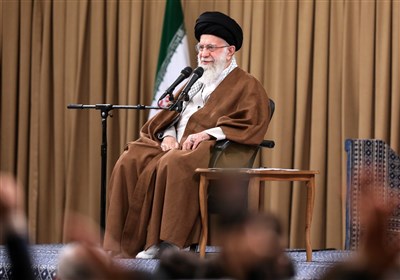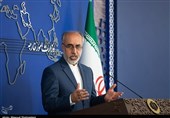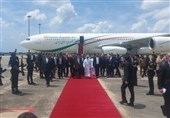Britain Eager for Resumption of Iran-Sextet Nuclear Talks
TEHRAN (Tasnim) - British Foreign Secretary William Hague reaffirmed London’s commitment to begin a new round of nuclear talks between Iran and the Group 5+1 (the five permanent UN Security Council members plus Germany) in order to draw up a comprehensive deal on Iran’s nuclear issue.
In a Tuesday telephone conversation with Iran’s Foreign Minister Mohammad Javad Zarif, Hague restated Britain’s commitment to cooperate with the major world powers to begin talks with Tehran with the aim of helping resolve the West's standoff over Iran's peaceful nuclear program.
According to a British foreign office spokesperson, Hague has also voiced his country’s commitment to achieve a full diplomatic solution to the issue.
The British foreign secretary further welcomed the first step to put into practice a nuclear deal that Tehran and the world powers signed onto last November.
“The foreign secretary welcomed the entry into force yesterday of the Joint Plan of Action on Iran’s nuclear program, describing it as an important milestone and a positive step towards addressing some of the most serious concerns about Iran’s nuclear program,” the official added.
The two sides had on November 24, 2013, signed a six-month deal on Tehran’s nuclear program based on which the world powers agreed to suspend some non-essential sanctions and to impose no new nuclear-related bans in return for Tehran's decision to freeze parts of its nuclear activities and to allow more inspection of its nuclear facilities.
The Geneva deal, which has come to effect since January 20, also stipulates that over the course of six months, Iran and the six countries will draw up a comprehensive nuclear deal which will lead to a lifting of the whole sanctions on Iran and Tehran will provide the world verifiable guarantees that its nuclear program is solely for peaceful purposes.
Based on the interim deal, the world powers agreed to suspend some non-essential sanctions and to impose no new nuclear-related bans in return for Tehran's decision to suspend its 20% enrichment for a period of six months.
Such relief would include suspension of some restrictions on trade in gold, precious metals and petrochemicals, and in the auto industry. The deal allows third-country purchases of Iranian oil to remain at current levels. Some $4.2 billion in oil revenues would be allowed to be transferred to Iran.





